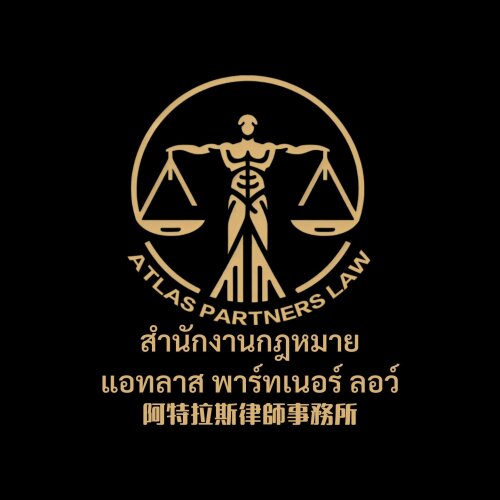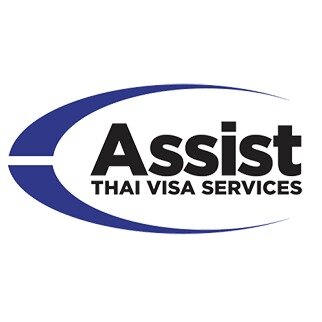Best Permanent Residency Lawyers in Chiang Mai
Share your needs with us, get contacted by law firms.
Free. Takes 2 min.
List of the best lawyers in Chiang Mai, Thailand
Legal guides written by SIAM LEGAL INTERNATIONAL:
- Defamation Laws in Thailand: Criminal Charges and Civil Suits
- The State of Thailand’s Long-Term Resident (LTR) Visa Program in 2025
- The Penalties Of Not Filing Your Income Tax Return As A Foreigner In Thailand
Thailand Permanent Residency Legal Articles
Browse our 2 legal articles about Permanent Residency in Thailand written by expert lawyers.
- Legal Implications of Remote Work in Thailand
- Remote work, often referred to as telecommuting, has emerged as a dominant trend reshaping global employment landscapes. For Thailand, a country known for its digital nomad appeal and vibrant expat community, the rise of remote work brings unique legal, cultural, and operational considerations. Our comprehensive guide here explores the legal... Read more →
- On Becoming a Permanent Resident in Thailand
- If you plan on residing in Thailand for an extended period, becoming a permanent resident may be an option over applying for a visa or annual renewal. Once a year, the Immigration Department begins accepting permanent resident applications, usually from October to December; however, this year (2019), the application window... Read more →
About Permanent Residency Law in Chiang Mai, Thailand
Permanent Residency in Chiang Mai, Thailand, offers an opportunity for foreigners to live and work indefinitely in the country without the need for periodic visa renewals. It is especially popular among expatriates who wish to make Thailand their long-term home. Being granted Permanent Residency status allows individuals enhanced opportunities in employment, education, and business ownership compared to other visa types. However, the application process is stringent, requiring applicants to meet specific criteria set by Thai immigration laws. The process can take some years, and often, it also necessitates a significant understanding of the local legal and bureaucratic landscape.
Why You May Need a Lawyer
Seeking Permanent Residency in Thailand involves navigating through complex legal and bureaucratic processes. Here are some common scenarios where legal assistance might be necessary:
- Understanding and fulfilling the eligibility criteria, including financial, investment, and employment requirements.
- Providing documentation that meets Thai legal standards, in areas such as business ownership rights or proof of employment.
- Handling complicated paperwork and translations of documents into Thai as required by immigration authorities.
- Dealing with appeals and additional requests from Thai immigration officials if your application is initially denied.
- Ensuring that your application is submitted correctly and effectively to avoid unnecessary delays.
- Adhering to changes in immigration policy or law which may affect your residency status.
Local Laws Overview
The key local laws concerning Permanent Residency in Chiang Mai fall under the jurisdiction of the Thai Immigration Act. Below are critical aspects to consider:
- Eligibility Requirements: Residency is limited to certain groups, including those with work permits, investors, experts, and close relatives of Thai nationals.
- Quotas: There is an annual cap on the number of people granted residency, making timing and thorough preparation crucial.
- Application Process: The process includes an extensive documentation phase, an interview in Thai, and an endorsement from the Immigration Commission.
- Investment Requirements: For those applying as investors, proof of financial investment in the Thai economy is necessary.
- Linguistic Competence: Interviews are conducted in Thai, so proficiency or the assistance of a translator is advisable.
Frequently Asked Questions
What are the benefits of obtaining Permanent Residency in Thailand?
Permanent Residency allows for an indefinite stay, the right to purchase property, and easier work permit applications, among other benefits.
How long does the Permanent Residency application process take in Thailand?
The process can take several months to a few years, depending on your circumstances and compliance with the requirements.
Can Permanent Residency status be lost?
Yes, if you leave Thailand for an extended period without a re-entry permit, or if you break Thai laws significantly, you may lose residency status.
Is fluency in Thai a requirement for Permanent Residency?
While fluency is not required, a basic conversational understanding is necessary, as interviews are conducted in Thai.
Are there specific financial requirements to apply for Permanent Residency?
Yes, applicants may need to show a certain level of annual income, tax payments, and/or investment in Thai businesses.
Do I need to hire a lawyer for the Permanent Residency application process?
While not mandatory, hiring a lawyer can greatly simplify the process and help avoid common pitfalls and legal snags.
What documents are required for the application?
Required documents typically include passport copies, work permits, tax papers, and evidence of residency, among others.
Can family members apply for Permanent Residency under my application?
Yes, certain categories allow for family members, such as spouses or minor children, to be included in your application.
How often do rules and regulations regarding Permanent Residency change?
While not frequent, immigration rules can change, so it's important to stay informed or consult a legal professional.
What is the annual quota for Permanent Residency in Thailand?
The quota varies yearly and is typically in the hundreds. Consultation with immigration officials or a legal advisor is advisable for up-to-date information.
Additional Resources
Several resources can assist those seeking Permanent Residency in Chiang Mai:
- The Thai Immigration Bureau: Provides official guidelines and updates on immigration laws.
- The Ministry of Foreign Affairs of Thailand: Offers information regarding legal and consular services for foreigners.
- Local legal firms specializing in immigration law: Provide tailored advice and assistance with application processes.
- Expat communities and forums: Can offer shared experiences and informal advice.
Next Steps
If you require legal assistance for Permanent Residency in Chiang Mai, take the following steps:
- Research and reach out to local immigration law experts familiar with the Permanent Residency process.
- Gather all necessary documents and ensure they are properly translated and legally certified.
- Stay informed about any changes in the law or new requirements announced by the Thai Immigration Bureau.
- Consider joining expatriate groups or forums to discuss and share experiences with others going through the same process.
- Schedule a consultation with a legal advisor to review your situation and plan your next steps in the application process.
Lawzana helps you find the best lawyers and law firms in Chiang Mai through a curated and pre-screened list of qualified legal professionals. Our platform offers rankings and detailed profiles of attorneys and law firms, allowing you to compare based on practice areas, including Permanent Residency, experience, and client feedback.
Each profile includes a description of the firm's areas of practice, client reviews, team members and partners, year of establishment, spoken languages, office locations, contact information, social media presence, and any published articles or resources. Most firms on our platform speak English and are experienced in both local and international legal matters.
Get a quote from top-rated law firms in Chiang Mai, Thailand — quickly, securely, and without unnecessary hassle.
Disclaimer:
The information provided on this page is for general informational purposes only and does not constitute legal advice. While we strive to ensure the accuracy and relevance of the content, legal information may change over time, and interpretations of the law can vary. You should always consult with a qualified legal professional for advice specific to your situation.
We disclaim all liability for actions taken or not taken based on the content of this page. If you believe any information is incorrect or outdated, please contact us, and we will review and update it where appropriate.















